This week-long observance serves as a poignant reminder of the importance of men’s health in society. Furthermore, it is a tribute to the dedicated professionals who tirelessly work towards ensuring the well-being of their patients.
Men’s Health Week, a prominent event on the healthcare calendar, stands as a beacon of awareness, education, and action to address their unique health challenges. This year, we shed light on the importance of men’s health and the commendable efforts of healthcare professionals who play a pivotal role in safeguarding and enhancing their patient’s life.
International Men’s Health Week is an opportunity to recognize and celebrate the tireless dedication of healthcare professionals who work diligently to support patients in their journey toward optimal health. Physicians, nurses, specialists, and caregivers are integral to the healthcare ecosystem, providing comprehensive care, valuable insights, and guidance. Their expertise, commitment, and unwavering support are instrumental in promoting healthier lifestyles, early detection, and effective treatments also empower men to lead fulfilling lives.
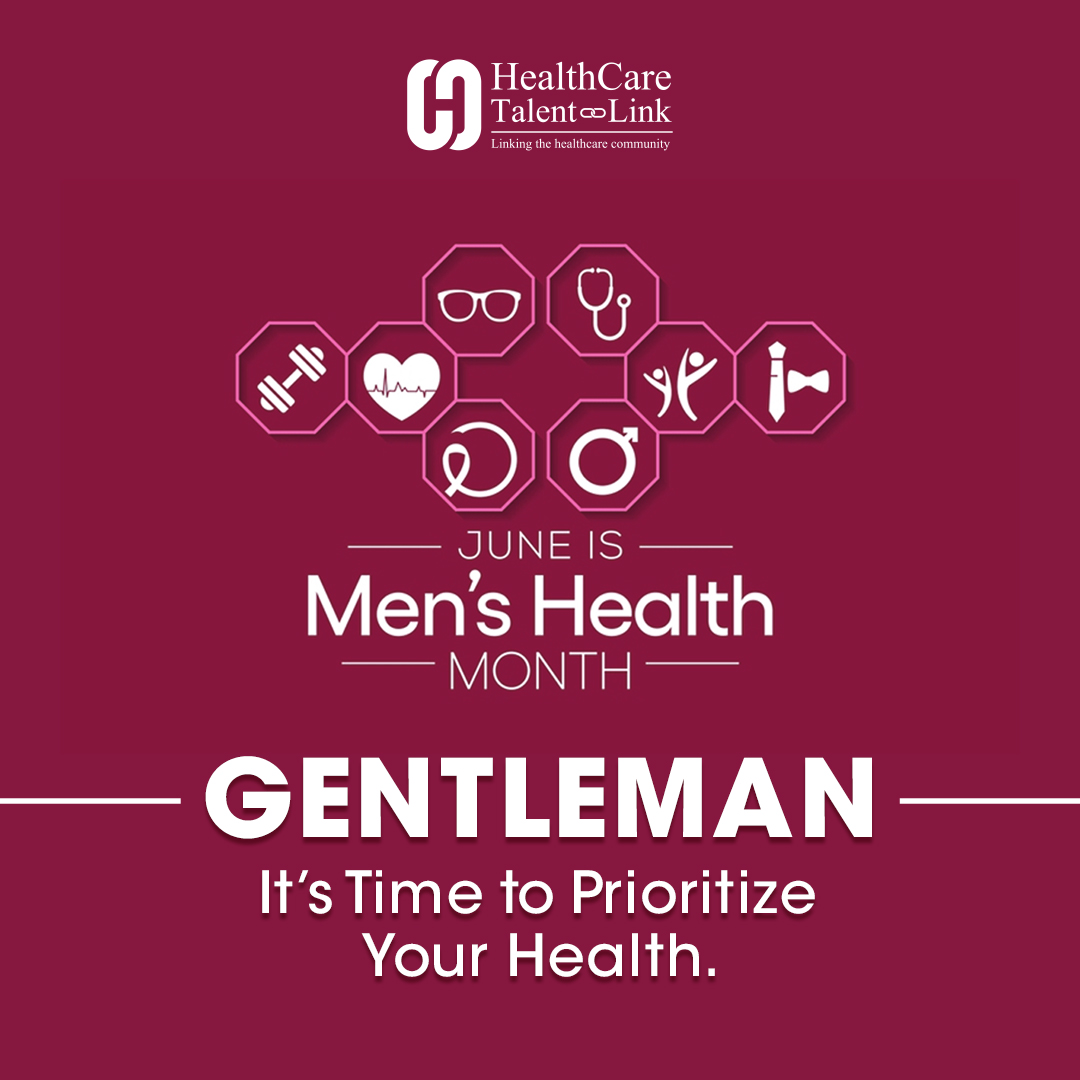
Men’s Health Week: A Glimpse into Some Health Prospects
You might not know it, but some facts and figures can be alarming for all men out there. These statistics show how diseases are more prevalent in the male population and need immediate or due attention. Let’s have a look at it.
Cardiovascular Diseases
On average, 16.3 million American aged 20 or above have a prevalence of CVD, which accounts for seven percent. Out of these, 8.3 percent accounts for men.
Cardiovascular diseases include heart attacks (myocardial infarctions) and angina pectoris or chest pain. According to Roger and Colleagues, American adults aged 20 or above have a 3.1 percent chance of getting a heart attack. However, men are more likely to get a heart attack.
On the other hand, our male healthcare professionals are also susceptible to cardiovascular conditions. Many reasons can attribute to the high rate, such as long working hours, the demanding nature of their jobs, and irregular sleep hours.
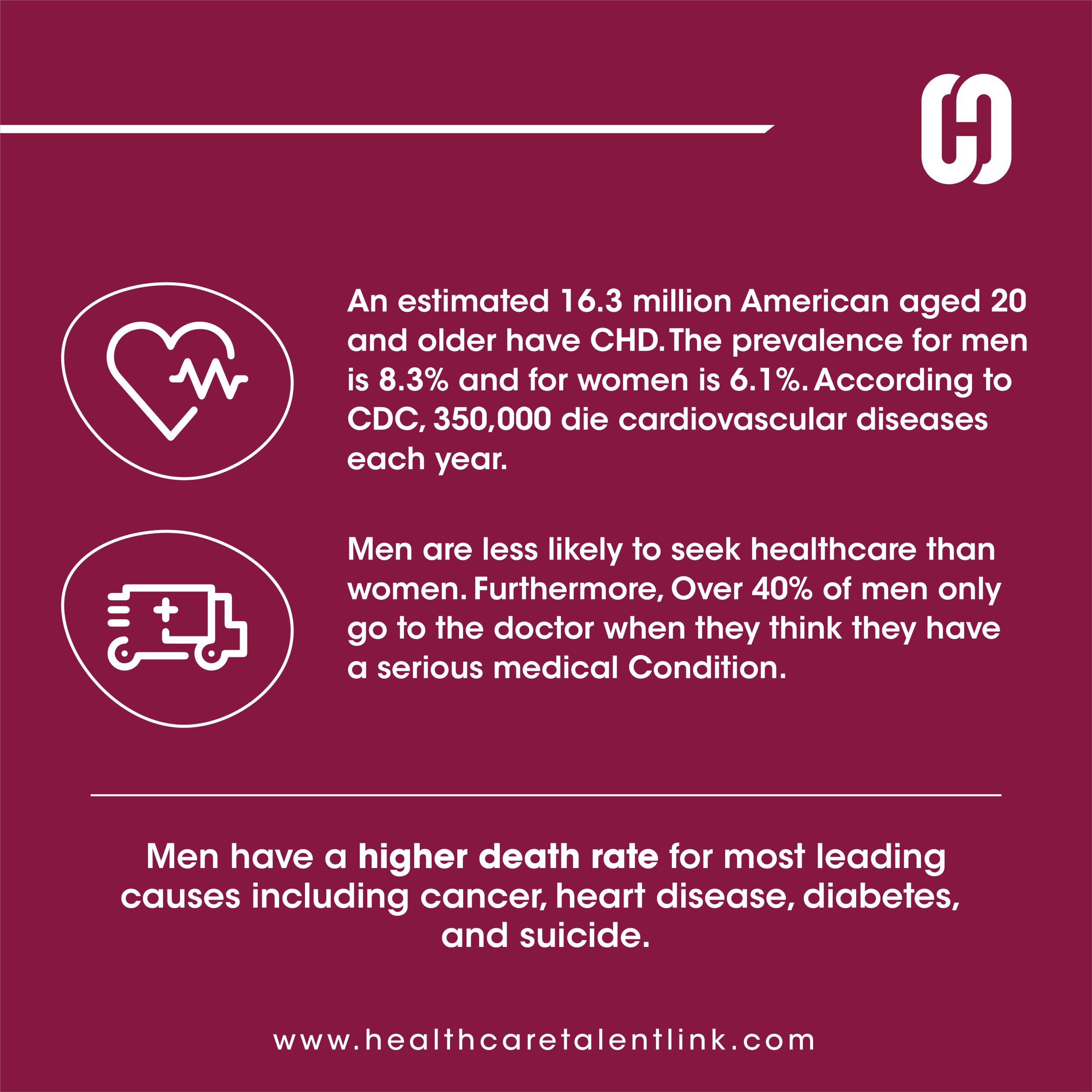
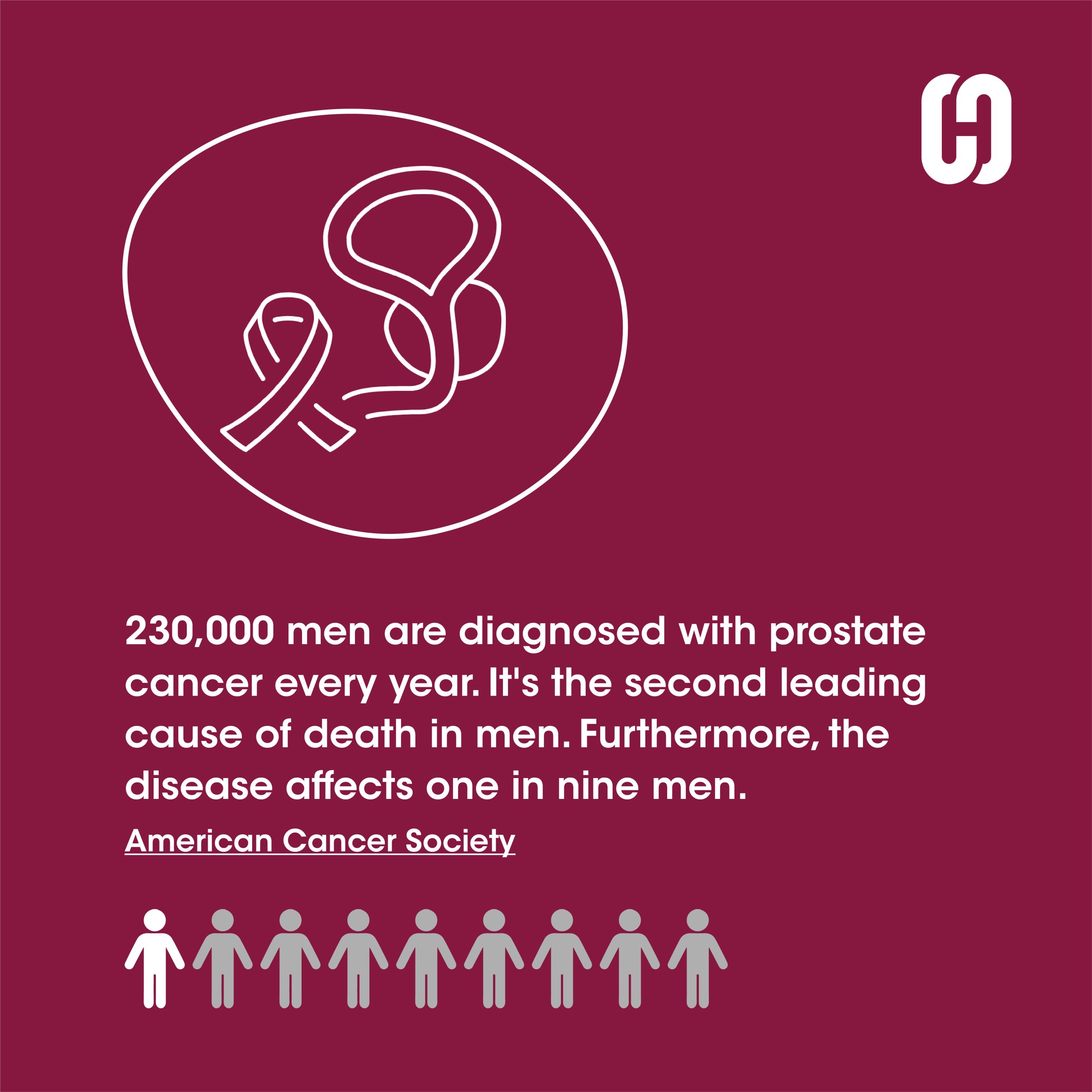
Prostate Cancer
According to estimates, prostate cancer is the fourth most diagnosed cancer worldwide. In 2020, around 1.4 million people got this ill fate. The rate of prostate cancer diagnosis gradually increased since 2014 at a rate of 3% each year.
Furthermore, according to the American Cancer Society, 1 in 8 men have prostate cancer in life. Moreover, it is the second most common cause of death in men.
Mental Health
It’s a sad affair, but the suicide rate in men is 3.6 times higher than in women. Furthermore, men also account for 70% of all suicidal cases. There may be various reasons that may lead to such alarming rates, including stigma related to men’s mental health.
It might not be a popular opinion, but men face mental health issues such as anxiety and depression. Around 1 in 10 men suffer from mental health issues, while less than half opt for treatment. Moreover, each year around 6 million men are imprisoned for depression but go untreated.
Mental health is a condition that spares neither the patient nor their healer. Moreover, concerns such as stress, anxiety, substance use disorder, and even suicidal behavior are also common in the healthcare industry. These issues lead to healthcare professionals’ burnout, a leading challenge in the industry.
This men’s health week, our topmost priority is to talk about men’s mental health and break the stigma around it. We will not ask you to man up, but we’ll encourage you to open up about your mental health and seek help.
How to Cope with the Prevalent Health Issues
Did you know that men live five to six years less than women?
Scientists believe biological differences play a vital role in establishing the lifespan of men and women. According to Population Reference Bureau, estrogen, a female hormone, reduces harmful cholesterol levels and protects against heart diseases.
However, in addition to some hormonal factors, lifestyle plays a considerable role in such conditions. According to a study by The Cleveland Clinic on American men, 40% of men visit a healthcare provider when they think they reach a life-threatening complication. Moreover, half of the men thought that health is not something they consider most.
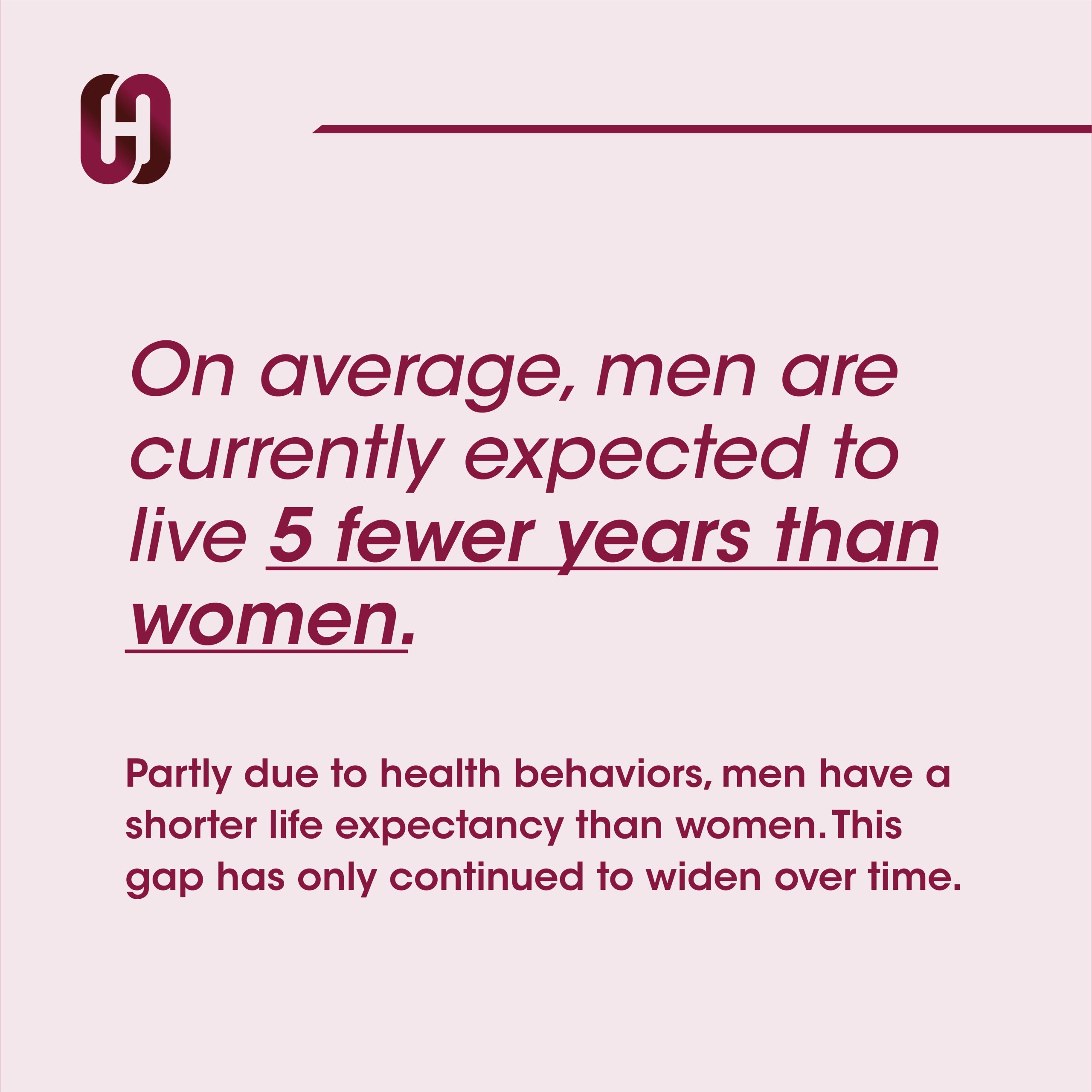
Following is a guide on how men can take better care of themselves:
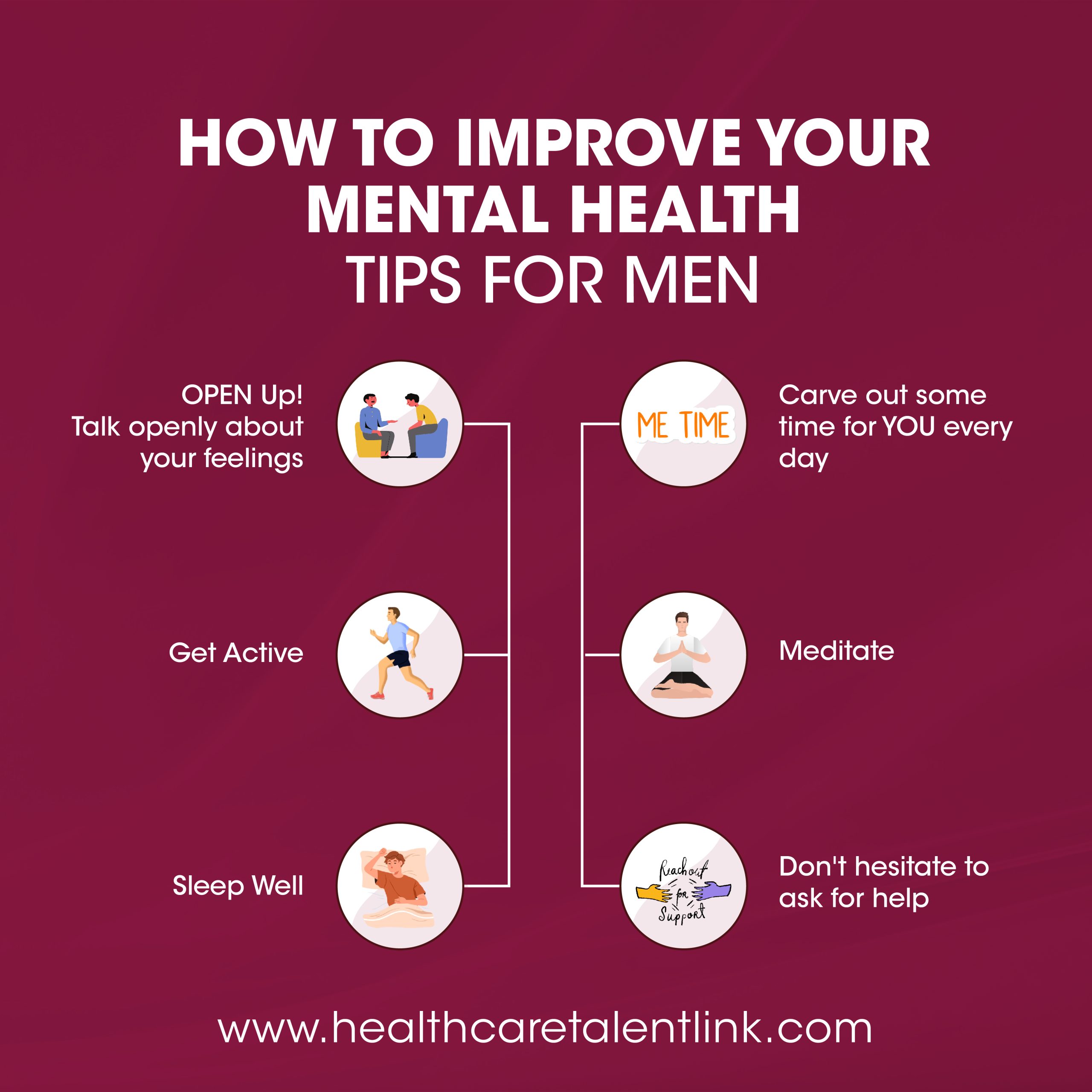
Open Up
This men’s health week, let’s spread awareness that men do not need to man up but to open up. Men wear a mask daily to cover their emotions. They need to talk openly about their feelings and stop apologizing. Men often bottle up their feelings and reside them inside forever. This locking of emotions and not expelling them out contributes to mental health issues. Speak freely, where it needs to be, and do not hide your inner emotions. Ask for help from your family and friends to help you get along.
If you are a male healthcare professional, seek assistance to carve out ways to reduce mental strain. If you feel burned out, talk to the administration for impactful solutions.
Me Time
Set aside some time in your day exclusively for yourself. Prioritize self-reflection, stress reduction, and self-care to overcome mental strain and get proactive with your life. Allot this time to music, book reading, nourishing your mind, etc., to drain the stress far away. You can also include meditation during this time to release mental stress slowly. It is better for both physical and psychological health.
Sleep Properly
The best way to improve health is to optimize your sleeping hours. Gain at least 7-8 hours of sleep daily. It helps to balance your internal mechanisms and contributes significantly to your health. Moreover, sound sleep helps to relax your mind and makes you active the next day.
Although managing sleep with work in a healthcare professional can be stressful, simplify things and make space for regular slumber. It is one of the crucial points this men’s health week.
Get Active
Staying in bed all day makes you lazy and affects your physical health. It has some mental constraints as well. Exercising boosts your mood. Although, it is not necessary to run a marathon or do heavy exercises. You can go for a walk or a quick run. If you get active, it positions your body and mind in the right place. If you are a healthcare professional, free up some time from your work and get some walks. It will reduce the stress level significantly.
Preventive Care to Follow This Men’s Health Week
Men’s health week spreads awareness about male health and well-being. So, here are a few preventive measures for varying age groups:
Preventive Health for Men in their 20s and 30s:
Men in their early 20s have fewer health issues than older people. However, if you adopt a healthy lifestyle at an early stage, you can avoid diseases at an older age. Here are a few tips to adopt in your early 20s.
- Make sure your vaccination is up to date.
- Get a dental checkup after every 24 months (about 2 years).
- Get your eye checkup once in your 20s and twice in your 30s.
- Schedule a checkup after every three years.
Although you do not have any known health issues, you should at least see a doctor once every three years. This men’s health week let’s prioritize regular doctor’s visits to provide everyone access to healthy living.
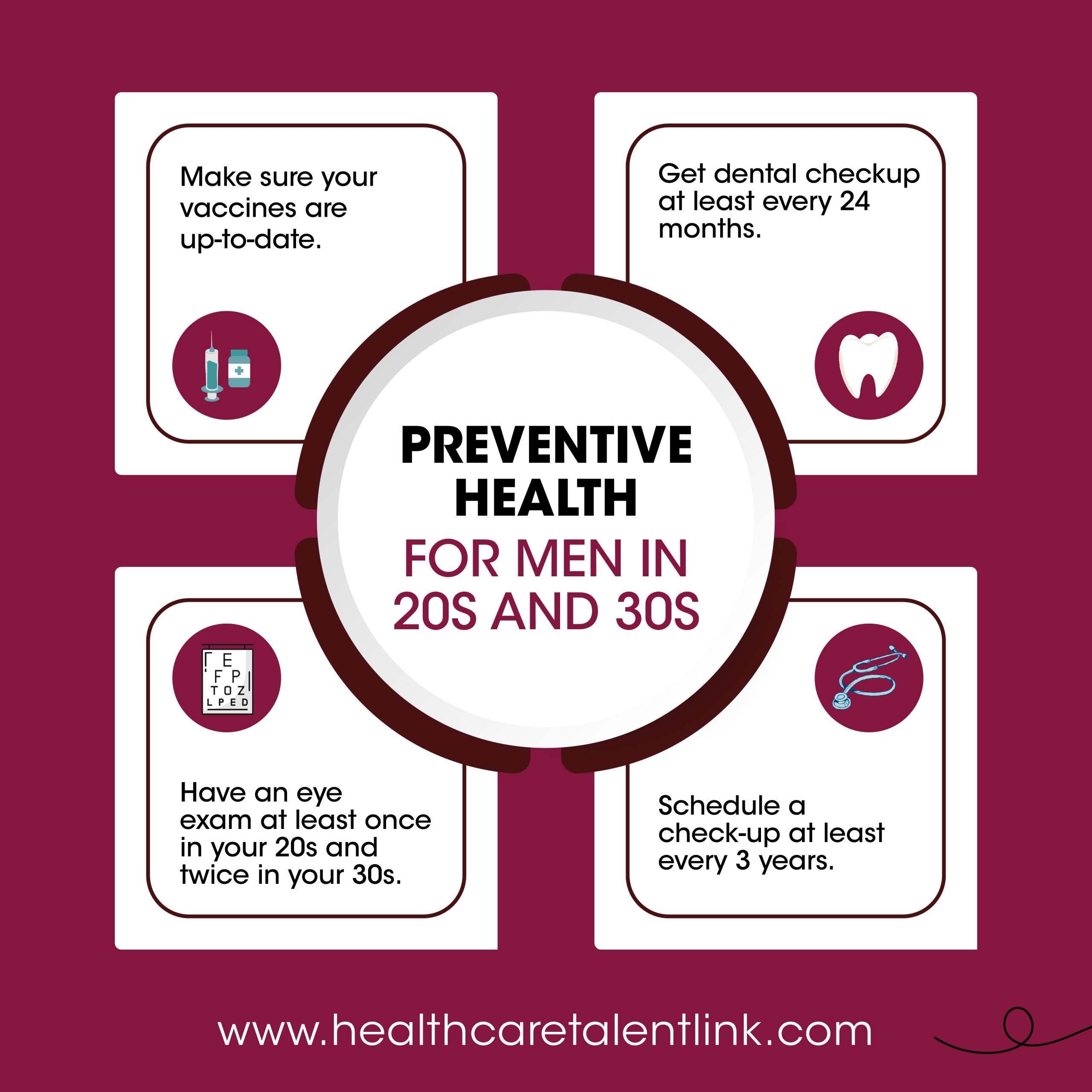
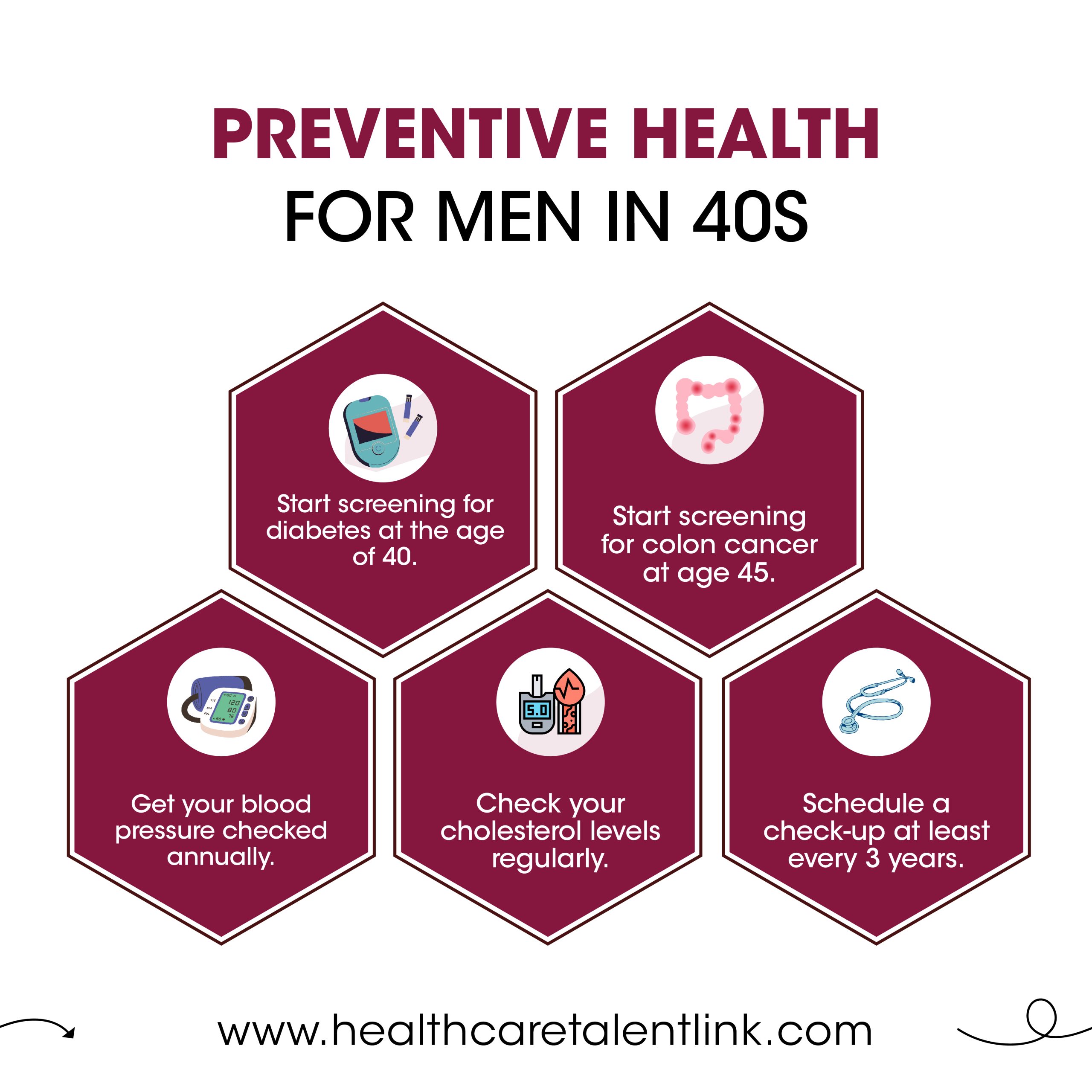
Preventive Health for Men in the 40s
Men in their 40s face a significant issue of obesity. It leads to hypertension, high cholesterol levels, etc. You should opt for regular checkups. It helps to assess your future risks of developing diseases. Here are a few other tips to adopt:
- Start diabetes screening at the age of forty.
- At 45, start screening for colon cancer.
- Check blood pressure every day.
- Check cholesterol level regularly.
- Schedule a checkup every three years.
With regular checkups and a healthy lifestyle, you can avoid many health-related issues at an early stage. So, see a physician now and follow up regularly if you want a healthy life ahead.
Preventive Health for Men in the 50s
The age of 50s is more prone to developing serious health complications. Your metabolism and immune functions decline significantly. Therefore, visit a physician more often. Getting your vaccines administered and avoiding infection contribute to healthy living in your 50s.
- Schedule a routine checkup once every year.
- Once you turn 50, get your shingles vaccines.
- See a physician for prostate cancer when you are 55.
Adopting these vital steps helps you delay health problems or avoid them. This age demands more intensive care and a shift to healthy living to increase longevity.
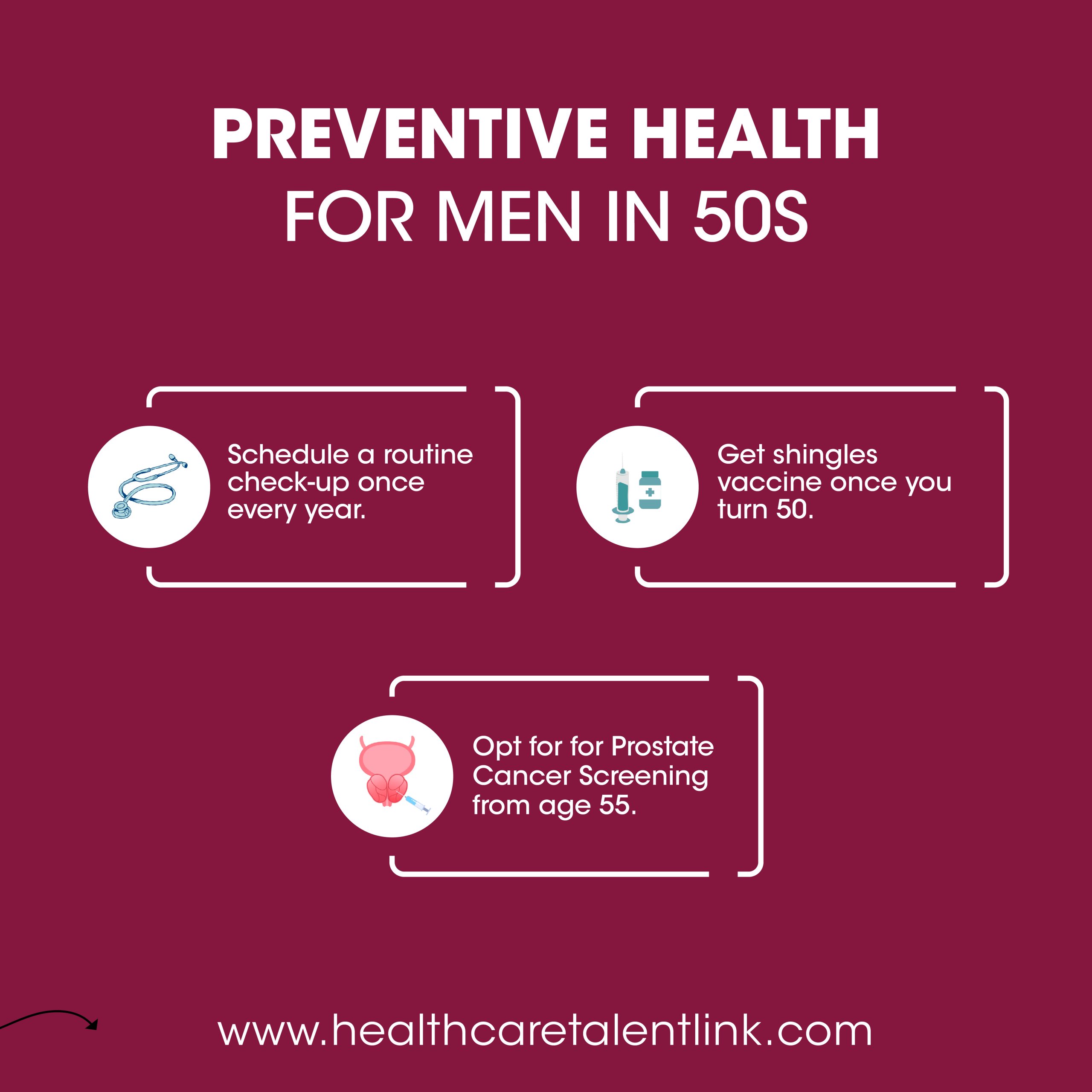
Conclusion
To conclude, men’s health week reminds us that their lives matter too. They are more reluctant to visit a physician for checkups. Moreover, they do not see a doctor unless the situation worsens.
Therefore, we dedicated this week to the men and release them from prison for physical and mental issues. Let’s provide them the subtle care they deserve. This blog enables you to understand men’s health-related issues, statistics, etc. It highlights the preventive measures men should follow based on specific age groups. The significant thing to consider is to relax your mind and release mental strain. Moreover, seek medical assistance or your family and friends’ help whenever required. Do not hesitate, as it’s your fundamental right.
For our healthcare professionals, it is time to find an opportunity that values your time and health. HealthCareTalentLink (HCTL) is the healthcare’s first dedicated professional platform that links the healthcare industry with its talent, products, and services. From clinical to non-clinical professionals, HealthCareTalentLink refines your opportunity hunt by shift preferences that could help reduce burnout.

